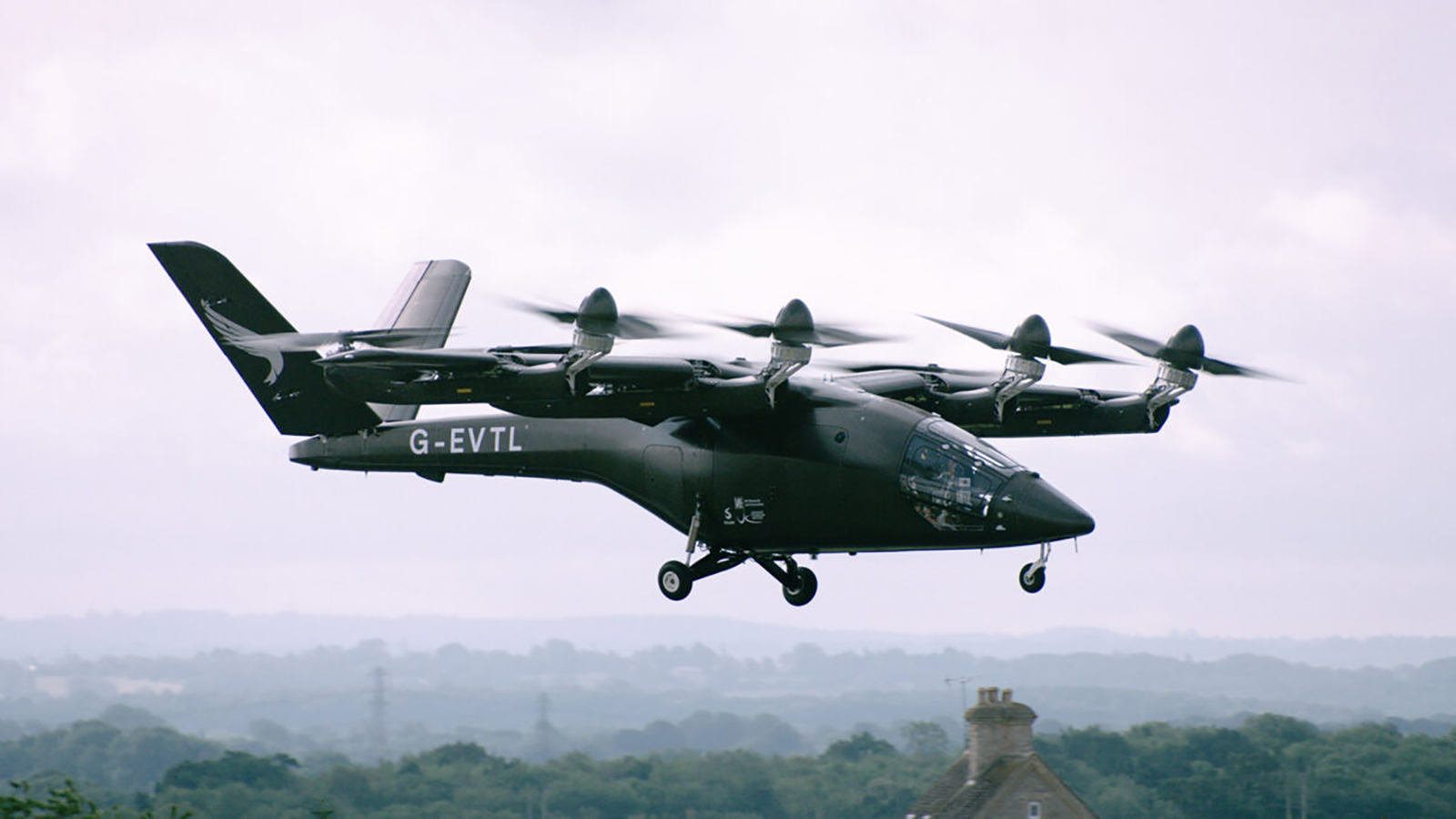Stay Up to Date
Submit your email address to receive the latest industry and Aerospace America news.
Vertical Aerospace aims to recover, and doing so is not unprecedented in the short history of advanced air mobility market
Vertical Aerospace faces a financial headwind as its stock has trended downward since the company’s remotely piloted VX4 prototype crashed at a United Kingdom regional airport in early August without injuries, but says it continues fundraising efforts to finish strong in that regard in 2023 and set up a vigorous test program for next year.
Vertical, based in Bristol, U.K., warned investors in November that it will run out of cash next year unless more funds are raised. As of Sept. 30, the end of the company’s third quarter, Vertical reported it had £74 million on hand ($94 million) and expected to spend all that by September 2024 on building and flying its next prototype.
“We remain focussed on raising new funds in 2023, with our current cash runway taking us towards the end of” the third quarter of calendar year 2024, CEO and founder Stephen Fitzpatrick wrote in a letter to shareholders dated Nov. 9.
Then on Dec. 1, Vertical reported that it received a warning from the New York Stock Exchange that the company will be removed from that exchange if the value of its stock doesn’t rise above one U.S. dollar for any 30-day average over the next six months. Removal from the prestigious NYSE index wouldn’t necessarily spell the end of the company, but it would relegate Vertical to so-called “penny stock” status.
Following the Aug. 9 crash, Vertical’s stock slumped below a dollar for the first time on Oct. 30 and has remained below a dollar. As of Thursday afternoon, the stock traded at 80 cents per share.
The company said in a news release that it had “notified the NYSE that it intends to regain compliance” with the exchange’s standards and “is considering all available options to do so.”
It’s not the first time a company developing an electric air taxi received such a warning. German company Lilium, based near Munich, got a warning in April from the Nasdaq stock exchange that it would be delisted from that index because its stock had slumped below a dollar for 30 days. In July, however, Lilium announced that it had raised $192 million in new funds, which boosted its financial reserves and stock price.
In response to questions about Vertical’s financial outlook, the company replied in an email that it remains “focussed on raising new funds in 2023” and that it anticipates an “intensive flight test programme for 2024,” including public flight demonstrations at Heathrow Airport in London and at the Farnborough International Airshow in July.
Vertical is ranked eighth out of 28 advanced air mobility companies on the AAM Reality Index, a list curated and updated regularly by Arizona company SMG Consulting and its co-founder, Sergio Cecutta. The list is based on how much money a company has raised, experience of the management team, and progress toward certification of an aircraft and bringing it to market.
Cecutta told me he has kept Vertical ranked relatively high on the list because “we rank their accomplishments; we do not look at the future.”
“I am sure [Vertical] is working super hard to make sure that they can raise more money. But at the same time, time is running out,” Cecutta said. “If they don’t raise money by the next three to six months, they are going to have to either slow down significantly with their program or make other changes.”
About paul brinkmann
Paul covers advanced air mobility, space launches and more for our website and the quarterly magazine. Paul joined us in 2022 and is based near Kennedy Space Center in Florida. He previously covered aerospace for United Press International and the Orlando Sentinel.
Related Posts
Stay Up to Date
Submit your email address to receive the latest industry and Aerospace America news.




